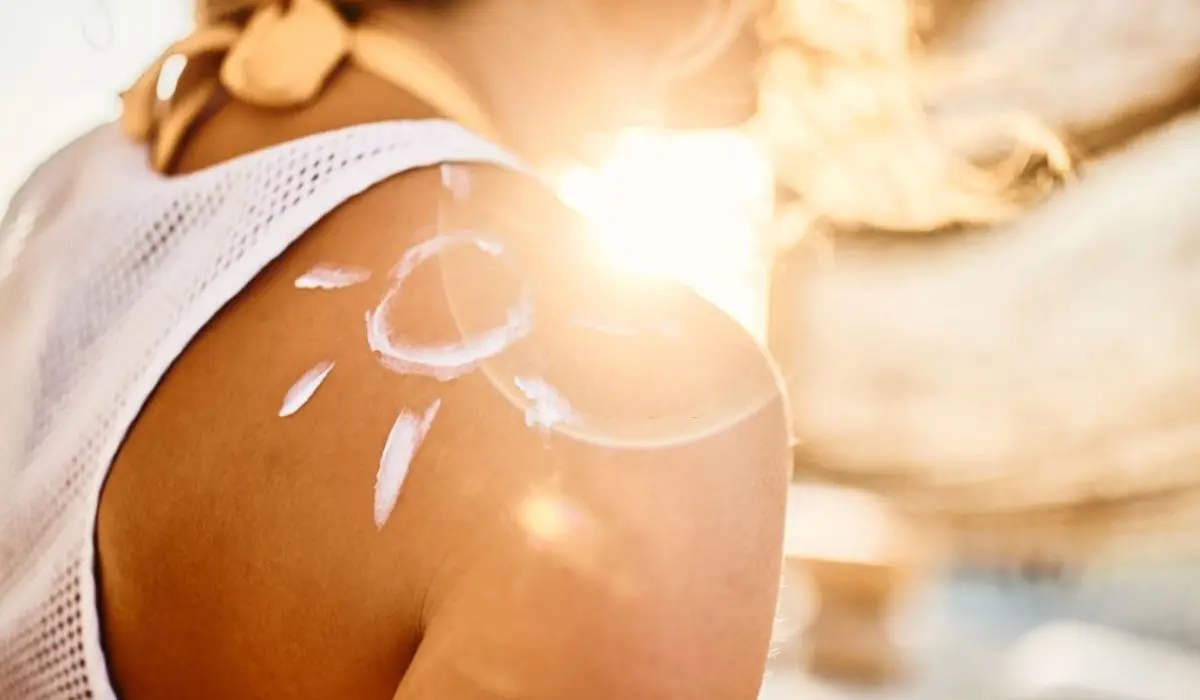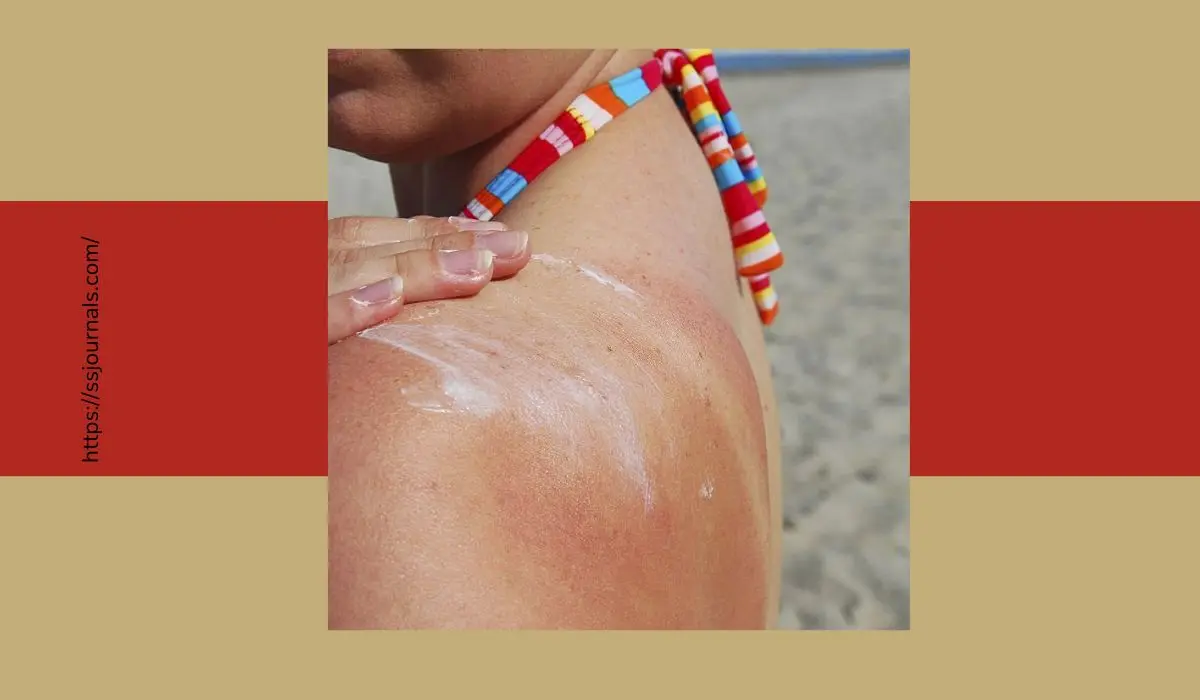Spending long hours unprotected in the summer sun can result in the painful condition known as sun poisoning. While mild sunburns peel away after a few days, severe sun poisoning can leave you feeling quite ill. Read on to learn how to find relief from this summertime mishap.
What Is Sun Poisoning?
Sun poisoning, also called phototoxicity, is essentially an extreme case of sunburn that occurs after intense, prolonged sun exposure without proper protection for your skin type. Like a bad burn from touching something hot, the skin reddens, swells, blisters and becomes very painful as an inflammatory reaction to radiation damage from UV exposure exceeding your body’s protective capacity.

In addition to burnt skin, drenching sweats, chills, nausea, dehydration, headache, and fainting episodes can occur if a large skin surface area is affected. In rare cases, extremely high UV levels can even provoke systemic symptoms like fever and hives as the body reacts to severe radiation injury.
While sun poisoning sounds dire, it isn’t contagious or literally poisonous. But it does require diligent treatment to minimize damages while the sunburn heals. With the right care, you’ll be back to frolicking under beach umbrellas worry-free before you know it.
Signs You Have Sun Poisoning
Suspect sun poisoning if you experience:
Mild sunburns just turn slightly pink or red with minimal peeling. With sun poisoning, the burn is intensely painful and disrupts your normal functioning.
Seek medical treatment for severe skin blistering, confusion, fainting, high fever, or low blood pressure.
Sun Poisoning vs. Heat Exhaustion vs. Heat Stroke
It’s important to distinguish sun poisoning from heat-related illnesses:
- Sun Poisoning
Skin redness and pain from UV radiation damage. Can cause chills, fever, and nausea.
- Heat Exhaustion
Heavy sweating, muscle cramps, dizziness, and fainting from losing fluids and salt from heat exposure.
- Heat Stroke
A life-threatening condition marked by extremely high body temperature over 103°F causing delirium,
While excessive sun and heat underlie all these conditions, the mechanisms and severity differ.
Seek emergency treatment immediately if you or someone else exhibits signs of heat stroke like altered mental status and dangerously high temperature after a prolonged time in the sun.
Home Remedies To Relieve Sun Poisoning
Use the following remedies to soothe your suffering sunburned skin at home:
Cool baths
Bathe in lukewarm water or gently apply cool, damp towels to burnt areas. Avoid hot showers which further dry skin.
Moisturizing lotion
After bathing, gently apply fragrance-free lotions containing aloe or soy to hydrate the skin and provide a protective barrier.
Over-the-counter hydrocortisone cream
Apply a mild OTC hydrocortisone product to alleviate swelling and itching.
Ibuprofen or naproxen
Take OTC nonsteroidal anti-inflammatories as directed to reduce swelling and ease pain.
Natural remedies
Applying used black tea bags, cucumber slices, baking soda paste, or white vinegar can temporarily cool burning skin.
Stay hydrated
Drink extra fluids like water, coconut water, diluted fruit juice, or electrolyte drinks to counter dehydration.
Use home treatments to keep cool as your burnt skin begins healing. But see your doctor if the pain seems excessive or complications like infection arise. Avoid popping blisters which can lead to skin infection.
Medical Treatment For Severe Sun Poisoning
In more severe cases producing systemic symptoms, your physician may prescribe:
- Powerful corticosteroid creams or oral steroids – To reduce widespread inflammation and swelling.
- Antibiotic ointments or tablets – If skin blistering gets infected.
- Antihistamines – For accompanying hives or itching.
- Pain medication – Stronger prescription pain relievers if over-the-counter options don’t sufficiently control discomfort.
- IV fluids – If dehydration from nausea and malaise is severe.
Follow up within 48 hours of initial treatment if symptoms like dizziness, nausea, and headache persist or worsen, as hospitalization for rehydration may be necessary.
How Long Does Sun Poisoning Last?
With proper rehydration and skin therapy, sun poisoning usually resolves within:
Days 1 – 3: Skin reddening, pain, blistering, nausea, and chills at their worst. Treat symptoms.
Days 4 – 6: Blisters fade, peeling begins. Swelling, pain, and dehydration improve.
Days 7 – 14: Peeling ends and skin starts regaining normal pigment. Discomfort subsides.
1 month: Any skin discoloration fully resolves. Healing complete.
However, the more severe the reaction from excessive UV exposure, the longer the recovery. Seek emergency care if symptoms seem extreme or don’t gradually improve with time.
Preventing The Recurrence Of Sun Poisoning
Once you’ve endured sun poisoning, you’ll likely be diligent about sun precautions going forward. But key tips include:
➜ Wear UVA/UVB sunscreen of at least SPF 30 before sun exposure. Reapply often.
➜ Cover up with wide-brimmed hats, long-sleeve rash guard shirts, and sunglasses.
➜ Stay hydrated. Dehydration exacerbates sun effects.
➜ Avoid extended sun time between 10 am and 2 pm when UV intensity peaks.
➜ Pick shady spots and use umbrellas or tents when relaxing outdoors.
➜ Never bake intentionally to tan. Gradual tanning doesn’t prevent burning.
➜ Check the medication list for any photosensitizing drugs like certain antibiotics.
➜ Treat even mild sunburns seriously to avoid cumulative radiation skin damage over time.
Can Tanning Beds Cause Sun Poisoning?
Yes, tanning beds definitely raise your risk of an extreme sunburn reaction. Dangers include:
- The intense UV radiation exceeds natural sunlight exposure.
- Lying horizontally maximizes the skin surface area exposed.
- Sweating inside beds washes off sunscreen before time is up.
- Dim lights make it hard to notice the extent of burning.
- “Base tans” don’t prevent eventual phototoxicity if continuing bed use.
Any tanning bed use raises skin cancer risks. But burning even once significantly increases the odds of melanoma. Avoid tanning beds entirely to protect your health and skin.
Am I Still Sun-Sensitive After Sun Poisoning?
Yes, even once the burnt skin heals after sun poisoning, your skin remains photosensitive. Melanocytes killed by radiation cannot regenerate. Avoid extra sun exposure until the following season to give your skin plenty of time to recover its UV resilience. Wear religious sunscreen and cover up diligently going forward.
Conclusion
While painful, with prompt soothing skincare and hydration, sun poisoning usually heals fully within two weeks without permanent damage. But enduring blistering burns to tan is unnecessary when prevention is so simple.
Respect the sun’s power, never burn intentionally, and – when in doubt – slather on extra sunscreen. Stay sun-smart to keep your skin healthy and happy for years to come.
FAQs
Yes, aloe contains cooling compounds that provide soothing relief from sunburn pain and itching. Look for aloe gels containing lidocaine to ease sun poisoning discomfort. Always apply gently without rubbing burnt skin.
No, never intentionally pop blisters from sun poisoning as this increases risk of infection. Keep blisters protected with gauze. See a doctor if any leaking fluid looks pus-filled indicating infection requiring antibiotics.
In rare cases, severe blistering from sun poisoning can damage deeper skin layers and leave slight scarring. Using topical vitamin E and covering burns helps minimize scarring risk. See a dermatologist if concerned about scarring.
No, sun poisoning is not contagious, unlike sunburns in infants which are very rare transmissible burn-like reactions. With sun poisoning, radiation directly damages an individual’s skin cells and DNA.
In exceedingly rare cases, a severe reaction causing swelling in the brain or airway obstruction could be fatal. But almost always, sun poisoning just causes symptomatic discomfort that improves within days to weeks. However, lifetime sun exposure raises significant skin cancer risks.

